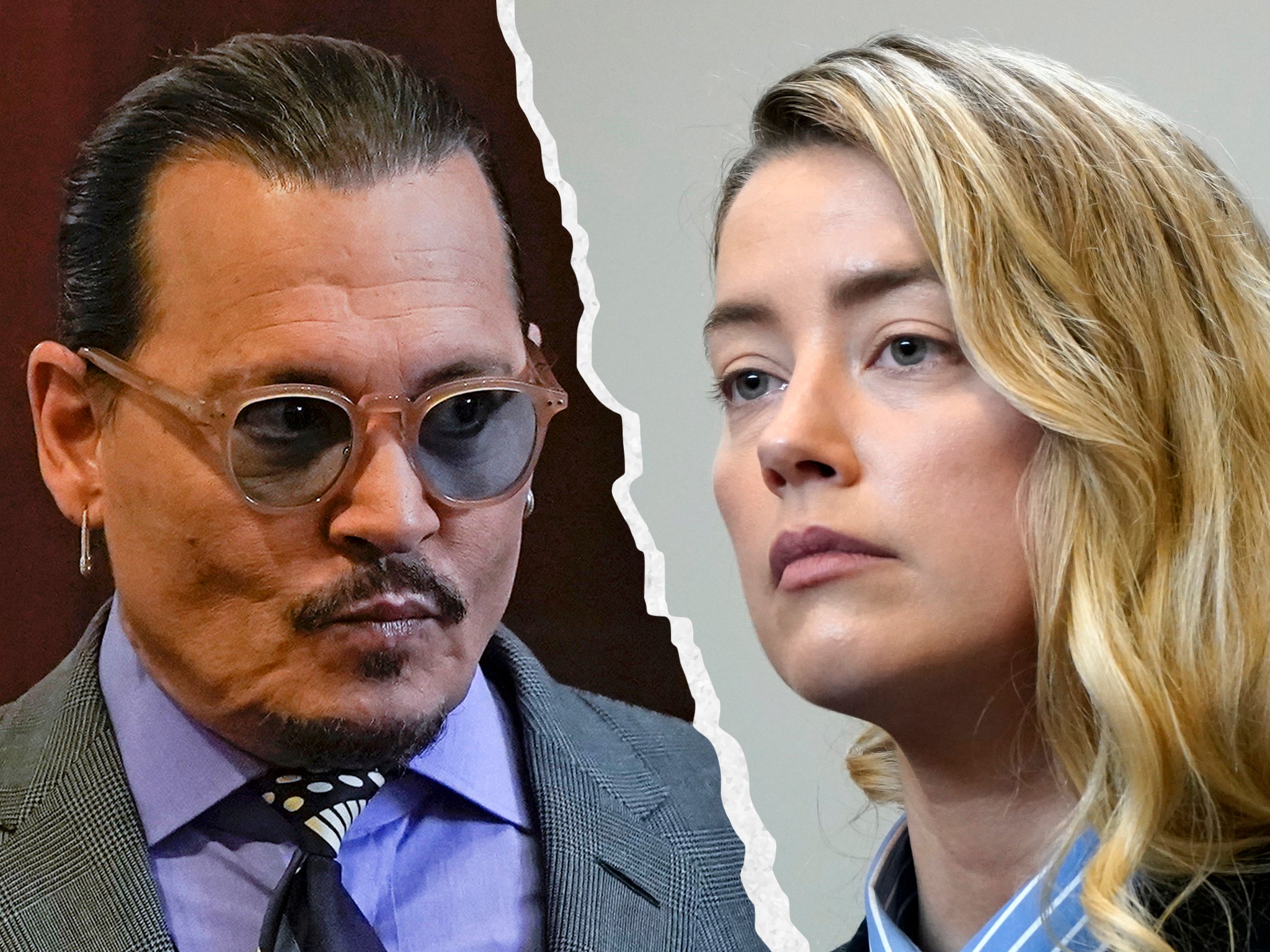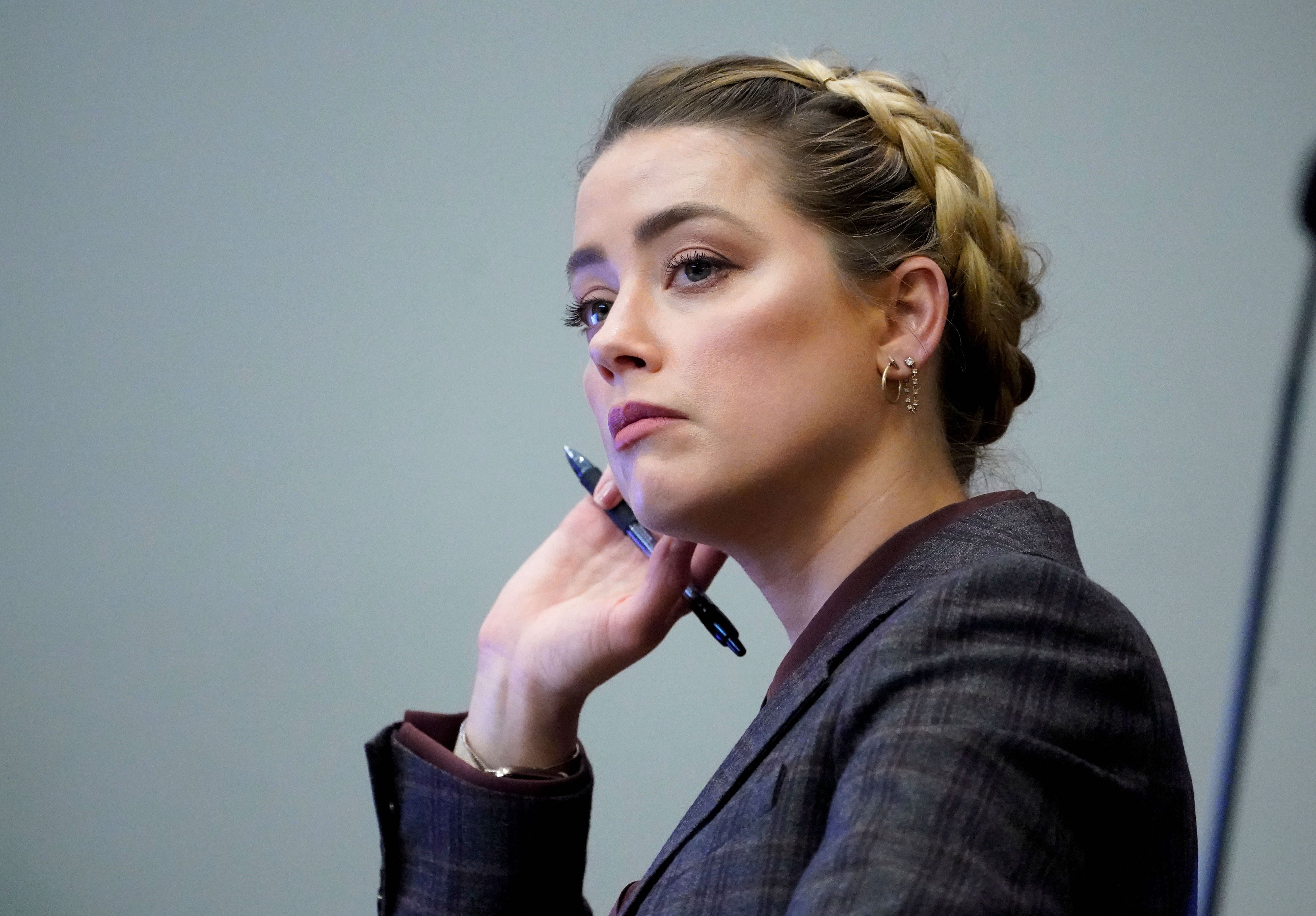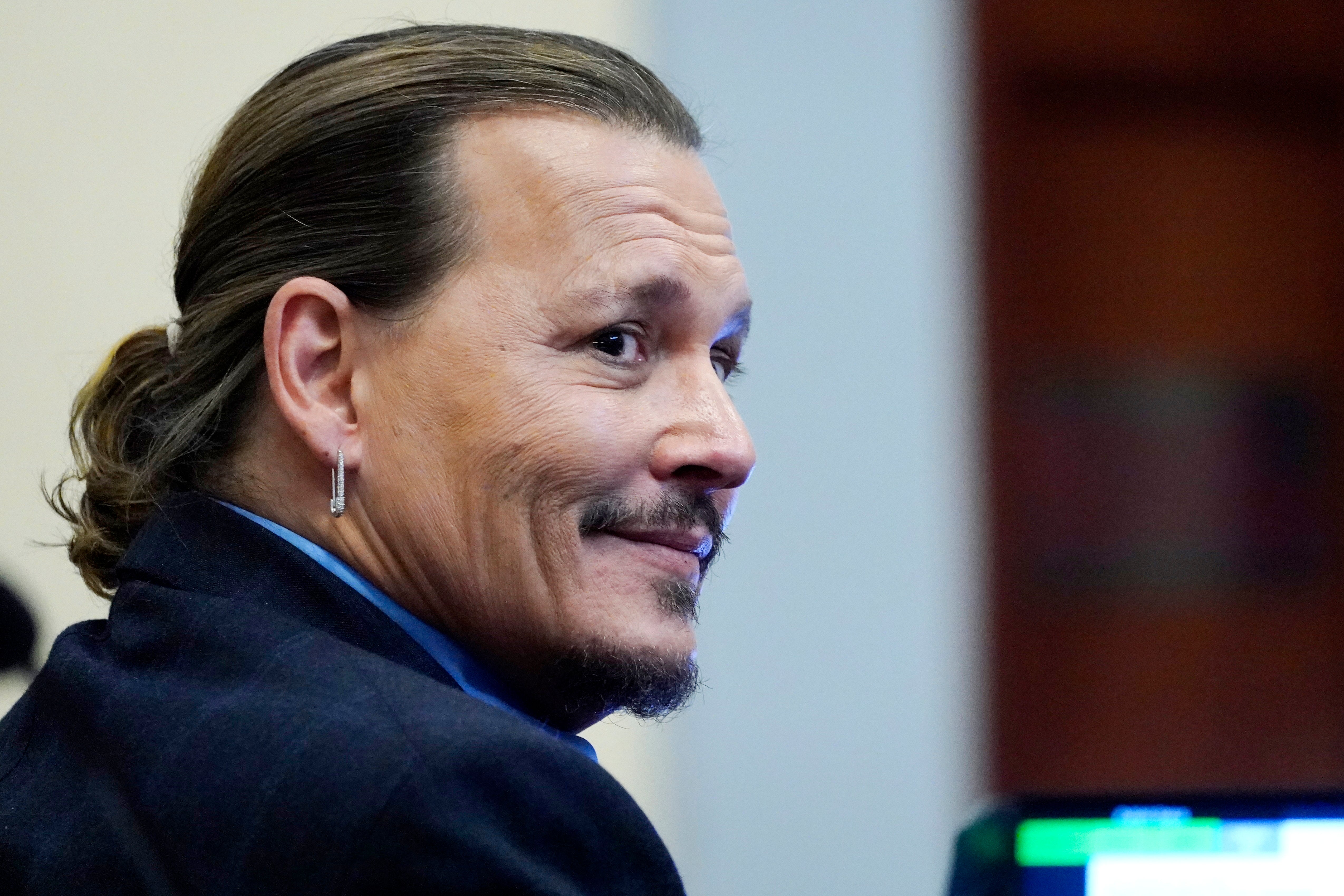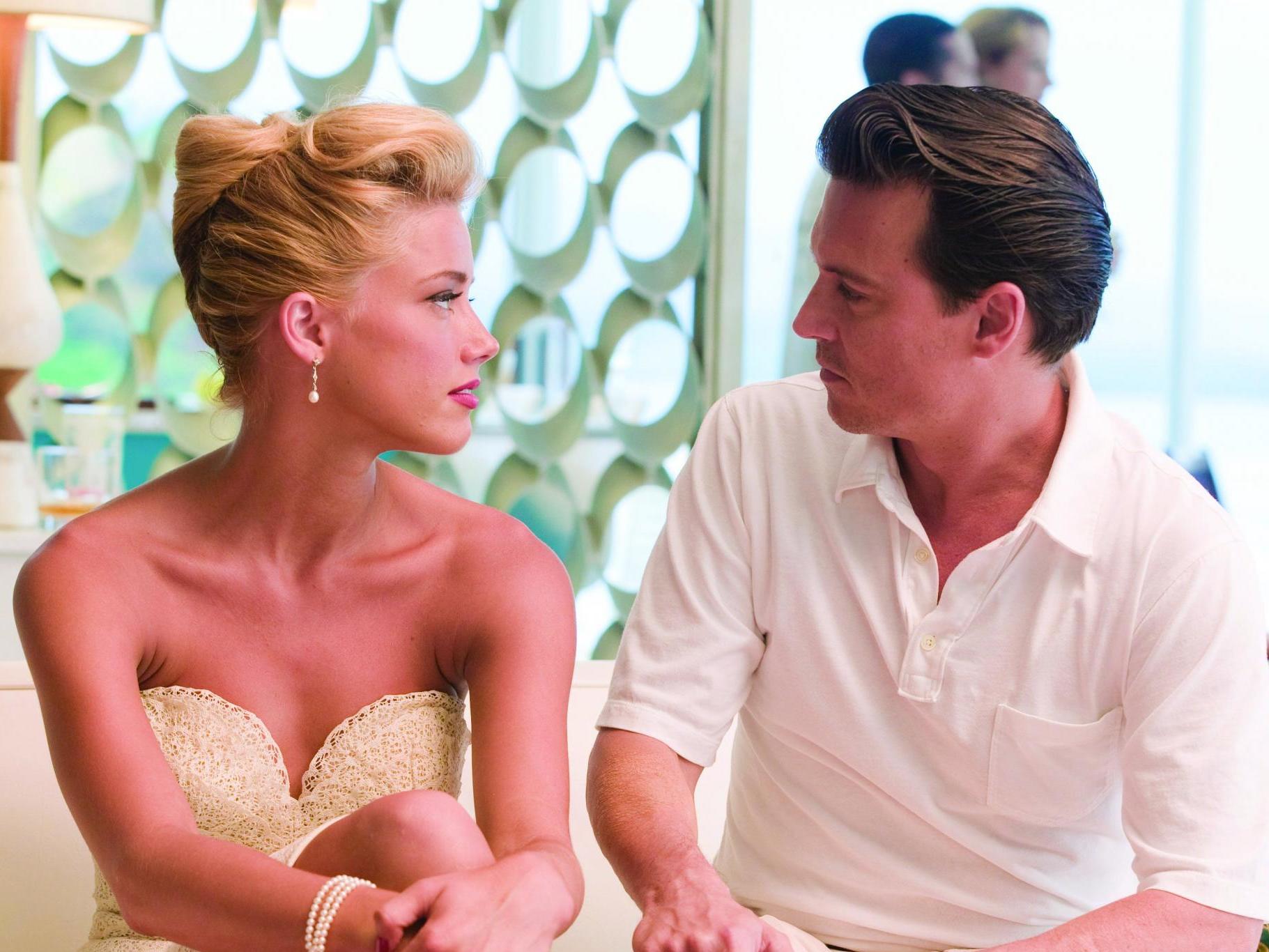Depp v Heard: How courtroom live-streaming turned an ugly battle between exes into a circus
As Law&Crime Network streams every single detail of the high-profile case, Tom Murray reports on how the lines between justice and entertainment have blurred

Millions of people are tuning in each day to watch as Johnny Depp sues his ex-wife Amber Heard for $50m in a defamation trial in Virginia, USA. Millions more will see the short, fan-made clips and compilations with titles such as “Johnny Depp destroys Amber Heard’s lawyer” and “Amber Heard’s Team Get Wrecked in the Most Hilarious Way by This Witness”.
Maybe you’ve seen the clip of Depp’s lawyer stealing the actor’s sweets. Or the one where Depp smirks as Heard’s lawyer asks him for the fifth time to confirm that, yes, that is his signature at the bottom of a document. Or maybe the one where Depp is grilled about the time he poured himself a “megapint” of wine. The trial, in short, has been impossible to escape.
It’s a much louder and far more bombastic affair than Depp’s previous defamation case. He lost that one – which was held at London’s High Court of Justice and not televised – to the publishers of The Sun, after a judge deemed its labelling of the actor as a “wife beater” to be “substantially true”. The current trial – over Heard’s 2018 Washington Post op-ed, which implied that Depp was a domestic abuser – is stranger still for the ease with which it can be viewed.
Public celebrity trials are nothing new. Indeed, the blurring of the lines between justice and entertainment has been going on for decades in the United States, as has the debate around them. Famous televised trials include the OJ Simpson murder case (1994-1995), the verdict of which was watched by more than 100 million people, and that of serial killer Ted Bundy (1979), which was the first to be broadcast nationally.
However, since Court TV’s 2019 relaunch, YouTube and live-streaming have put these national spectacles on an international stage. Rachel Stockman, president of Law&Crime Network, Court TV’s biggest competitor, tells me that of the 9 million viewers watching its Depp v Heard coverage every day, just 35 per cent are in the United States, where the trial is taking place, while 7 per cent are in the UK.
Meanwhile, Court TV, which is also streaming the case in full after filming permission was granted by judge Penney Azcarate, reported that its viewership had “practically quadrupled” during the trial.

Stockman explains that she has a team of “trial trackers”, like storm chasers for litigation, whose job it is to hunt down court cases that might be of interest to the public and then file requests with the respective judges for permission to film.
Murder cases are usually some of the most popular streaming events. Until celebrities come along, that is. “We are seeing, four, five, six times the number of viewers” as the Kyle Rittenhouse trial last November, Stockman says of Depp v Heard’s popularity.
But is it right that these cases are put on such a public stage? Former federal prosecutor Neama Rahmani, who regularly appears as a talking head on Court TV and Law&Crime, says it is imperative.
“There are a lot of folks in the United States that don’t have faith in our criminal justice system,” Rahmani explains. “They think prosecutors are corrupt, or police officers are, and any type of transparency, in my opinion – whether it’s from the prosecution perspective or law enforcement – really helps.”
Rahmani points to the trial of Derek Chauvin, the police officer who killed George Floyd, which streamed live on Court TV and held the channel’s biggest audience to date – until Depp v Heard. “I think it helps maintain and restore the public trust in our system of justice,” he says.
Which might be well and good when confronted with one of the most seminal public-interest trials of the decade, but two famous exes going at it in a courtroom? What does society stand to gain from that?

Wayne Cohen, an attorney and professor at the George Washington University school of law, points out that all trials in the United States are public, meaning anyone can walk in if they so choose. It’s literally the sixth amendment to the constitution.
“People that are advocates for streaming tend to leave out that fact,” Cohen says. It’s not like they were closed off before. Of course, it’s the same in the UK – minus the streaming, which makes checking in on a trial easier than ever before.
There are a number of criticisms aimed at providers of court footage, the main one being that it will affect the way people behave in court, from attorneys to witnesses. “If you stick a camera in front of me and suddenly now I have the ability to have a very wide impact, that has the potential to affect my ethical obligation to you as your lawyer,” Cohen says.
The witnesses, especially, may feel vulnerable to public scrutiny. Stockman estimates that around “70 per cent or more” of those commenting on the case online are pro-Depp, while Rahmani believes it to be more like 90-95 per cent. The anti-Heard bias is evidenced in a petition to remove the actor from her role in Aquaman 2. It also accuses her of carrying out a “systematic crusade to ruin Depp in Hollywood”, and has reached nearly 3 million signatures.
Meanwhile, a clinical psychologist who testified as the first defence witness for Heard on 3 May was bombarded with negative reviews on WebMD after describing what she called coercive abuse exhibited by Depp.
Witnesses who take the stand for the defence will be forced to consider whether what they say will anger Depp’s more aggressive sympathisers – it could, as the experience of the psychologist showed, affect their careers, after all. And it’s hard to argue that such considerations have no effect on the course of justice.

The visible tenacity of some Depp supporters could have far-reaching effects for victims of domestic abuse regardless of the verdict. According to a 2018 report by Women’s Aid, only 2 per cent of women using community-based services reported domestic abuse to the police.
“Many women don’t speak up about domestic abuse through fear of reprisal, negative backlash and their private lives being placed on display and judged. This public trial will be reinforcing that fear,” says a spokesperson for Solace Women’s Aid, one of Britain’s largest domestic abuse charities.
“Men hate Amber Heard because they think she’s the face of the MeToo movement and false accusations,” Rahmani adds. Indeed, Stockman was surprised to learn that 60 per cent of Law&Crime Network’s audience for the trial was male. Many Heard-haters are watching Depp deliver one of his finest performances, drooling over his subtle jibes at her lawyers, hanging on every slow word of his testimony in that infamous, throaty accent.
On his Sirius XM show, Howard Stern raged that Depp had orchestrated the televised trial out of an egoistic desire to be seen and heard: “That’s what narcissists do: [they say], ‘I will charm the pants off of America at the trial.’”
“I don’t think Depp filed this lawsuit to get tens of millions of dollars from his ex-wife; he filed this to try to clear his name and resurrect his acting career,” Rahmani claims. Indeed, asked by Heard’s lawyer why he had chosen merely to sue his ex-wife and not, as he had in the UK, the paper that had printed the words, the actor sidestepped and responded: “It was the only time that I was able to speak and use my own voice.”
The Pirates of the Caribbean star has got what he wanted – a chance to tell the world his side of the story using YouTube as his global soapbox. Whatever the actual verdict in a week’s time, many critics will argue that, in a way, Depp has already won.
Bookmark popover
Removed from bookmarks